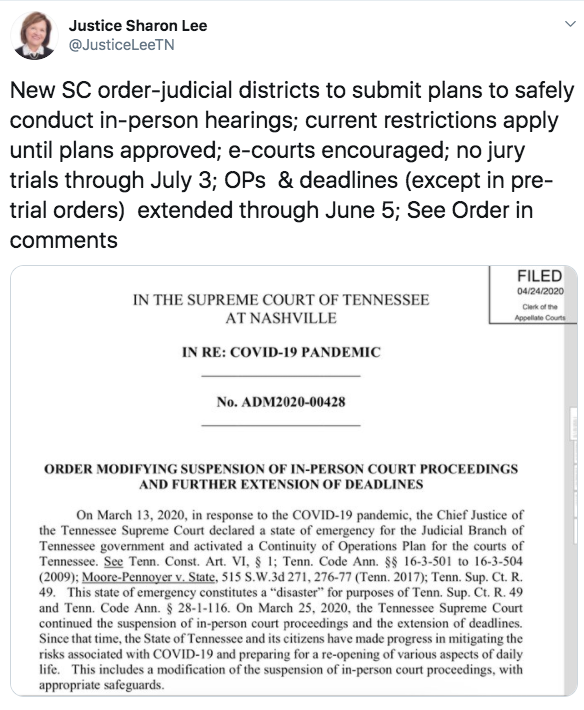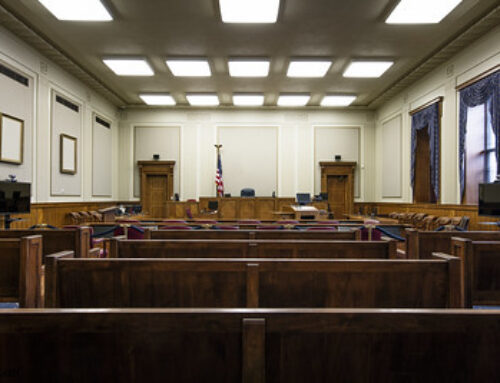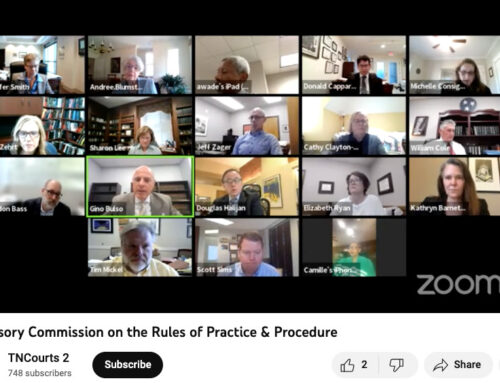
The Tennessee Supreme Court issued an order today modifying its earlier suspension of in-person court proceedings, providing a pathway for in-person court proceedings to resume.
The court on March 13 declared a state of emergency for the judicial branch of government in Tennessee, and suspended most in-person court proceedings with some exceptions. (The order was updated March 25.)
“Since that time, the State of Tennessee and its citizens have made progress in mitigating the risks associated with COVID-19 and preparing for a re-opening of various aspects of daily life,” the new court order issued today said.
Judicial district must file plans outlining safeguards
The new order extends the suspension of jury trials through Friday, July 3, 2020. But for other court proceedings, it allows each judicial district to file a plan with the Supreme Court outlining how it can resume in-person proceedings.
“The written plans may include different guidelines and restrictions for different courts or counties within a judicial district. The written plans should include guidelines and restrictions addressing matters including but not limited to admission into the courthouse, limitation of the number of persons in the courtroom, staggering of hearing times, management of social distancing in the courthouse and in the courtroom, and handling of witnesses (e.g., having witnesses remain in their vehicles or placing them in separate rooms). The use of personal protection such as face masks, as well as appropriate use of disinfectants, is encouraged in courthouses to protect court personnel and the public. Screening measures such as touchless thermometers and health questions relevant to COVID-19 may be used for entry into courthouses. However, factors such as availability and cost of such measures should be taken into consideration before inclusion as mandatory requirements in a written plan.”
However, the court is still urging that in-person business be limited when possible.
“Courts should continue to conduct as much business as possible by means other than in-person court proceedings. Courts are encouraged to continue and even increase the use of telephone, teleconferencing, email, video conferencing or other means that do not involve in-person contact. All of these methods should be the preferred option over in-person court proceedings.”
The order also says that judges offices and court clerks must remain “open for business,” but they may limit in-person contact with the public during the suspension.
The order does not make specific reference to public access to proceedings, but the Administrative Office of the Courts has said that if journalists or others need access to a court proceeding, they can contact the director of communications in the administrative office of the courts.




